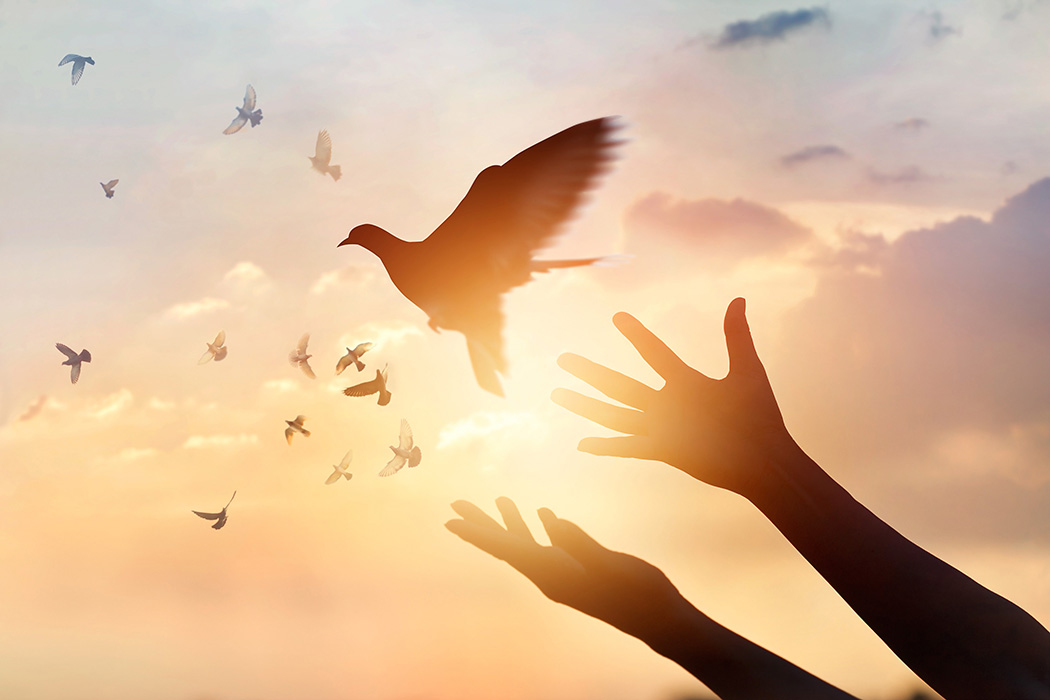
Woman praying and free bird enjoying nature on sunset background, hope concept
Seeing what you want to see
In 1998, Ralph and Sandra Fisher of LaGrange lost their beloved pet. Chance was, in their words, a “big bundle of loving.” He licked their faces and nuzzled up to them, unusual behavior for a full-grown, 1,000-pound Brahman bull. They took him to conventions, barbecues, even “The David Letterman Show.”
When Chance died at 19, the family was devastated. Three months later, Ralph heard about a new Texas A & M University animal-cloning program. With Chance’s DNA, 11 months later, the first cloned bull was born.
They named him Second Chance.
Bizarrely, when Ralph brought him home, Second Chance went straight to the spot where Chance used to lie in the yard. He walked with the same mannerisms as Chance. “We’ve got Chance back,” Ralph thought. But the doctor cautioned, “You need to be careful. He’s not the same animal. He’s not a pet.”
Nothing violent happened until his fourth birthday party. Second Chance slammed Ralph to the ground, horns digging in. “He was just going through a stage,” Ralph dismissively explained. “He’ll settle down. He’s still 95 percent Chance. That’s good enough for me.”
When you love, you see what you want to see.
Nearly two years later, Second Chance suddenly gored Ralph. Eighty stitches. Cracked his spine. Broke his nose. “Do you still think he’s 95 percent Chance?” they asked Ralph. “Maybe 80 percent or 75 percent now?” Ralph said, “Oh no, I still see him as gentle and good as Chance. I forgive him. I’m going to walk out tomorrow and give him another bucket of feed.”
There’s a picture of how God extravagantly loves us. God sees the best. We wound God; God loves us anyway. God forgives and keeps on forgiving. Why? Because when you love, you see what you want to see.
Inseparable, love and forgiveness perform a divine promenade. The one forgiven much loves much, while the one forgiven little loves little. Learning to love oneself is the beginning of forgiving oneself. Forgiving others often precedes learning to love them. But how would our hearts be unburdened and our relationships transformed if we could learn to forgive, again and again, ourselves and others?
Forgiveness involves seeing clearly: The immutable love of God, how much we have been forgiven, and how such grace requires that we forgive others.
In “Mere Christianity,” C.S. Lewis said, “It is perhaps not so hard to forgive a single great injury. But to forgive the incessant provocations of daily life — to keep on forgiving the bossy mother-in-law … the nagging wife, the selfish daughter, the deceitful son — how can we do it? Only by remembering where we stand, by meaning our words when we say in our prayers each night ‘forgive our trespasses as we forgive those that trespass against us.’ We are offered forgiveness on no other terms. To refuse it is to refuse God’s mercy for ourselves.”
It’s almost comical, the love Ralph had for Second Chance. Such is the foolishness of God towards us.




